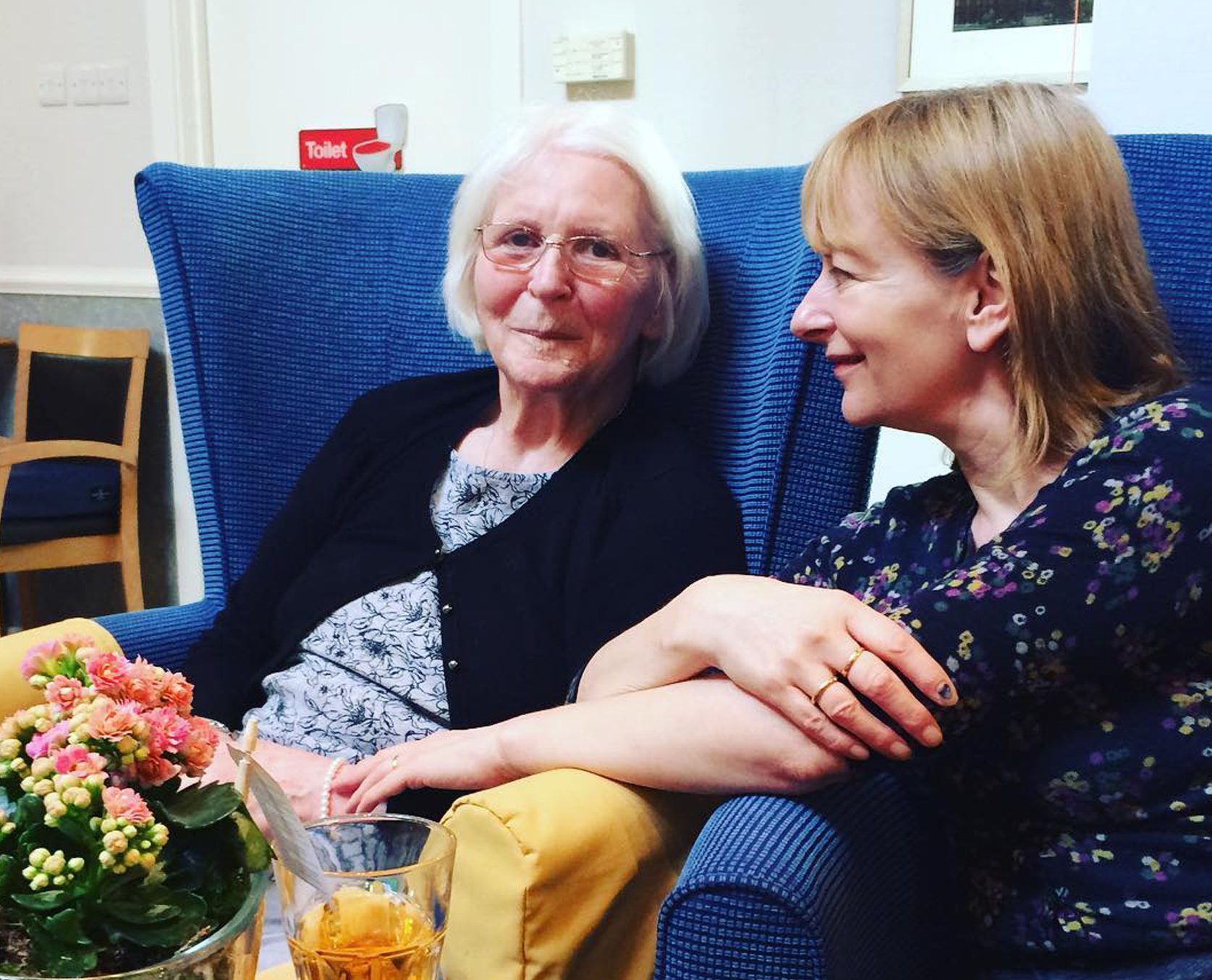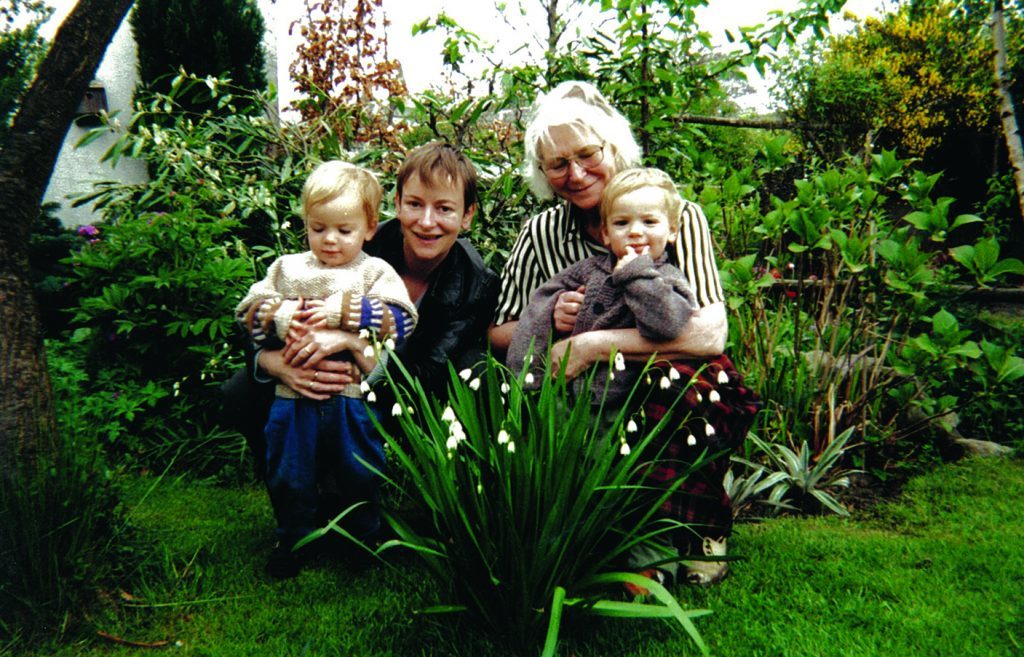
THE early symptoms of dementia can creep up slowly on families – and the festive season can bring them to the fore.
With many people getting together for the first time in months, it can also be a common time for noticing changes in a loved one.
According to Dementia UK, there’s a notable increase in people getting in touch for information on the disease over the Christmas period.
While memory loss is one of the most widely recognised symptoms of dementia, the condition can actually cause a range of symptoms in the early stages, with various types of dementia affecting people differently.
Here, author Fiona Gibson shares her experience.
It’s five years since my mother, Margery, started to show signs of dementia.
As her only child, I try to remain as cheery and practical as I can.
However, now and again, a small event completely undoes me – as happened when I was reading mum’s Christmas cards to her the other day.
“Dear Margery”, read one from Laura, a faraway friend in her 50s. “We always think of you at this time of year. Every December, you sent us a box of homemade decorations for our tree.
“The girls were always so excited to see what was in the box. It was as if Christmas had truly started when it arrived.”
Laura’s girls are now all grown up.
Edinburgh theatres announce festive programme of relaxed performances
It has been a good few years since mum, a talented crafter and seamstress, made decorations from fabric, felt and sparkling embroidery threads for our friends’ Christmas trees.
However, as I was growing up in our West Yorkshire village, her creations were a highlight of the festivities.
Mum hand-stitched soft toys, embroidered stockings for children and roamed the countryside for glossy green foliage with which to decorate our home.
Years later, when I’d become a mum too, she made wonderful fancy dress costumes for her three grandchildren.
She took woodworking classes so she could make her twin grandsons, Sam and Dexter, a racing track for their toy cars. She acquired a stone polisher and would polish the semi-precious stones we’d find together on Culzean beach in Ayrshire.
Art, crafts, history and nature – there was no end to mum’s enthusiasms.
And then one Christmas, five years ago, something changed.
We were all gathered round, playing a board game at our home in Biggar, South Lanarkshire, when we noticed mum couldn’t grasp the rules.
At first, we assumed she was having us on, pretending to be “dotty” – but as the weeks rolled on, it became apparent something was wrong.
Mum started to miss appointments and reported burglaries to her home that weren’t real.
Since her second husband had passed away – my parents had divorced 25 years previously – she had lived alone in Prestwick, then relocated to Biggar to be close to us.
Through our GP, mum saw a psychiatrist and was diagnosed with the early stages of dementia.
She refused to believe it, and we all muddled along as best as we could.
By the time next Christmas came around, mum’s confusion had worsened.
Watch: Agnes and Jodie explain why dementia friendly events are so important
Life was stressful, but manageable – just. However, eventually it became too risky for her to continue living in her own home.
Two years on from her diagnosis, mum enjoyed her first Christmas in the nearby care home we had chosen for her.
There was music, a vast buffet and dancing, and we took to the floor when an Elvis song filled the room (Mum adored Elvis).
It’s three years since mum, now 82, moved into the home. Preparations are under way for their wonderful Christmas party once again.
Mum can’t dance any more. She needs help with all aspects of her care, and these days, we read to her, and play music, which she still responds to a little.
It’s reassuring to know she is safe and with friends. However, we’ll always remember those Christmases mum made so special with her creative flair.
Our family friend Laura remembers them too, every time those handmade decorations are brought down from her attic and hung, lovingly once again, on their tree.
Fiona’s latest novel is published by Avalon.
6 common signs of dementia to keep in mind
1. Memory loss – relatives may recall a surprising range of things from their earlier years, but may forget more recent events.
2. Abnormal movements or restlessness – having restless legs is a symptom that is often overlooked.
3. Hoarding – often a person displaying symptoms of dementia will forget they have already bought something, so will have several of the same thing.
4. Mood swings – one of the most challenging symptoms to come to terms with is altered mood anger or frustration that can develop with early-onset dementia.
5. Difficulty with new environments – sudden changes in routine can leave people with dementia feeling agitated and uncomfortable.
6. Loss of subtleties of language – there may be issues with talking, getting lost midway in conversations, or struggling to recall the right words.

Enjoy the convenience of having The Sunday Post delivered as a digital ePaper straight to your smartphone, tablet or computer.
Subscribe for only £5.49 a month and enjoy all the benefits of the printed paper as a digital replica.
Subscribe